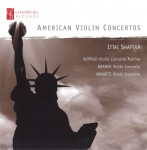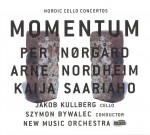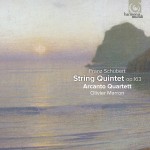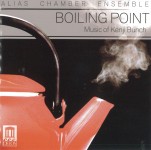 Just over a year ago I didn’t know of the Israeli violinist Ittai Shapira, but this month sees the third CD of his that I’ve reviewed in the past 15 months. American Violin Concertos, on the English nonprofit label Champs Hill, features reissues of the violin concertos of Samuel Barber and Gian Carlo Menotti with a world premiere recording of the violin concerto Katrina by Theodore Wiprud (CHRCD043). The Barber and Menotti were recorded in Moscow in 2001 with the Russian Philharmonic Orchestra under Thomas Sanderling, and issued separately on the ASV label. The Wiprud was recorded in Liverpool earlier this year, with the Royal Liverpool Philharmonic Orchestra under Neil Thomson.
Just over a year ago I didn’t know of the Israeli violinist Ittai Shapira, but this month sees the third CD of his that I’ve reviewed in the past 15 months. American Violin Concertos, on the English nonprofit label Champs Hill, features reissues of the violin concertos of Samuel Barber and Gian Carlo Menotti with a world premiere recording of the violin concerto Katrina by Theodore Wiprud (CHRCD043). The Barber and Menotti were recorded in Moscow in 2001 with the Russian Philharmonic Orchestra under Thomas Sanderling, and issued separately on the ASV label. The Wiprud was recorded in Liverpool earlier this year, with the Royal Liverpool Philharmonic Orchestra under Neil Thomson.
The Wiprud concerto was written at Shapira’s request, and premiered by him just a year ago. The composer describes it as reflecting on the devastation that Hurricane Katrina wrought on the musical life of the whole Delta region, the cradle of so much American music, and as exploring the enduring nature of music, and of life itself, even when apparently crushed by such overwhelming events. It’s a strongly tonal and very effective work.
I don’t recall hearing the Menotti before, but again it’s an immediately accessible work with hints of the Barber in the slow movement – hardly surprising, given the two composers’ almost life-long relationship. Shapira is in his usual superb form – and boy, can this guy play! He certainly has something new to say with the Barber. He takes his time with a meditative and rhapsodic first movement, allowing it to build slowly, but never at the expense of the lyrical nature. Both here, and in the slow movement in particular, the sensitive orchestral balance allows many often unheard details to come through. The Presto finale, while fast, is never simply a headlong rush, with clear delineation of the solo line.
Shapira never puts a foot wrong in impassioned, committed and intelligent performances. One of my earlier reviews mentioned that the violinist had already had 14 concertos written for him; this latest CD makes it easy to see why composers want to write for him. It’s also just as easy to see why people want to listen.
 Many years ago I worked for the Chester/Wilhelm Hansen music publishers in London, England, and we would receive a constant stream of new issue Scandinavian works from the Copenhagen office. Two of the leading composers were Denmark’s Per Nørgård (b.1932) and Norway’s Arne Nordheim (1931-2010) and both are featured on the new CD Momentum – Nordic Cello Concertos, featuring the Danish cellist Jakob Kullberg with the New Music Orchestra under Szymon Bywalec (Aurora ACD5075). The third work on the CD is Amers – Concerto No.1 for Cello, Ensemble and Electronics, by Finland’s Kaija Saariaho (b.1952).
Many years ago I worked for the Chester/Wilhelm Hansen music publishers in London, England, and we would receive a constant stream of new issue Scandinavian works from the Copenhagen office. Two of the leading composers were Denmark’s Per Nørgård (b.1932) and Norway’s Arne Nordheim (1931-2010) and both are featured on the new CD Momentum – Nordic Cello Concertos, featuring the Danish cellist Jakob Kullberg with the New Music Orchestra under Szymon Bywalec (Aurora ACD5075). The third work on the CD is Amers – Concerto No.1 for Cello, Ensemble and Electronics, by Finland’s Kaija Saariaho (b.1952).
I had difficulty back then trying to identify personal or national styles in the Scandinavian composers, and I find much the same problem now. It’s a challenge in any case to try to judge performances of contemporary works without the benefit of a study score; all you can really do is try to decide if the music communicates with the listener. The level of performance here is clearly very high throughout the CD, although the degree of communication will probably be a matter of individual taste.
Nørgård’s Momentum – Cello Concerto No.2 was written in 2009, and dedicated to Kullberg, who also gave the first performance; composer and soloist have enjoyed a close collaboration for the last 15 years.
Nordheim’s Tenebrae – Concerto for Cello and Orchestra was written in 1982 for Rostropovich and is performed here in a chamber orchestra version. It’s not a literal depiction of the Roman Catholic ecclesiastical service, but certainly addresses the same issues of shadow and pain.
Saariaho’s Amers – “sea marks” or “buoys” – was written in 1992, and was inspired by a collection of French poetry on the theme of the sea. The addition of electronic sounds possibly makes it a tougher first listen.
These are clearly works that must be listened to, and not approached casually; the result, though, will be worth the effort.
The Nørgård and Nordheim concertos – the latter apparently only in this chamber version – are premiere recordings. Both works are published by Wilhelm Hansen; the Saariaho, coincidentally, is published by Chester.
 Last month’s column featured an outstanding recording of the last string quartet that Schubert wrote, two years before his death, and this month there’s a CD of Schubert’s final string chamber work, the wonderful String Quintet in C Major, Op.163, D956, (harmonia mundi HMC 902106) that matches it in all respects. The ensemble in this performance is the German Arcanto Quartett with Olivier Marron on second cello.
Last month’s column featured an outstanding recording of the last string quartet that Schubert wrote, two years before his death, and this month there’s a CD of Schubert’s final string chamber work, the wonderful String Quintet in C Major, Op.163, D956, (harmonia mundi HMC 902106) that matches it in all respects. The ensemble in this performance is the German Arcanto Quartett with Olivier Marron on second cello.
The work was written in the summer of 1828, only a few months before Schubert died in November, and it’s one of the great masterpieces of the string chamber repertoire. Strangely, it wasn’t performed until 1850 and didn’t appear in print until 1853.
The lengthy booklet notes, somewhat awkward in their translation, present a complex, rather puzzling and not always convincing analysis of the nature of the contrasting elements in the music, but this is a work which needs no explanation, especially in performances like this one.
Recorded in the Teldex Studio in Berlin, the sound and balance are both exemplary.
 I still find it a bit strange having to use the term “21st century music,” but that’s what we have on the very interesting and appealing CD Boiling Point – Music of Kenji Bunch (Delos DE 3430) featuring members of the Alias Chamber Ensemble.
I still find it a bit strange having to use the term “21st century music,” but that’s what we have on the very interesting and appealing CD Boiling Point – Music of Kenji Bunch (Delos DE 3430) featuring members of the Alias Chamber Ensemble.
In a perceptive foreword, the Pulitzer Prize-winning composer Kevin Puts notes that it still isn’t easy “to write from the heart without fear of elitist backlash,” as Bunch does, and goes on to describe Bunch as a consummate musician who “can write effortlessly in a myriad of styles and languages, which he is able to juxtapose with elegance and humor.” All of which should give you a good idea of what this disc sounds like. It’s strongly – but not entirely – tonal music that reflects numerous diverse musical influences, and it’s beautifully crafted and always interesting.
Bunch, born in Portland, Oregon in 1973, describes the CD as a collection of some of his favourite and most deeply personal chamber works of the past decade.
Each of the five movements of String Circle for string quintet (with two violas) pays tribute to a particular kind of American string music: the highlight is a brilliant all-pizzicato movement evoking banjos and ukuleles.
Drift is a charming trio for clarinet, viola and piano; 26.2, for French horn and string trio, celebrates and depicts the composer’s first running of the New York City marathon with his wife – 26.2 miles is the official distance.
Luminaria, for violin and harp, drew its inspiration from the Mexican/Pueblo tradition of votive candles enclosed in coloured paper wrappings.
The final title track, for string quartet, string bass and drums, is a spirited full tilt romp that follows the development of water in a kettle as it gradually escalates to the boil; it’s performed with a live kettle on stage, the performance ending only when the whistle blows!
All in all, a delightful CD of solid, captivating pieces, beautifully performed and recorded.
